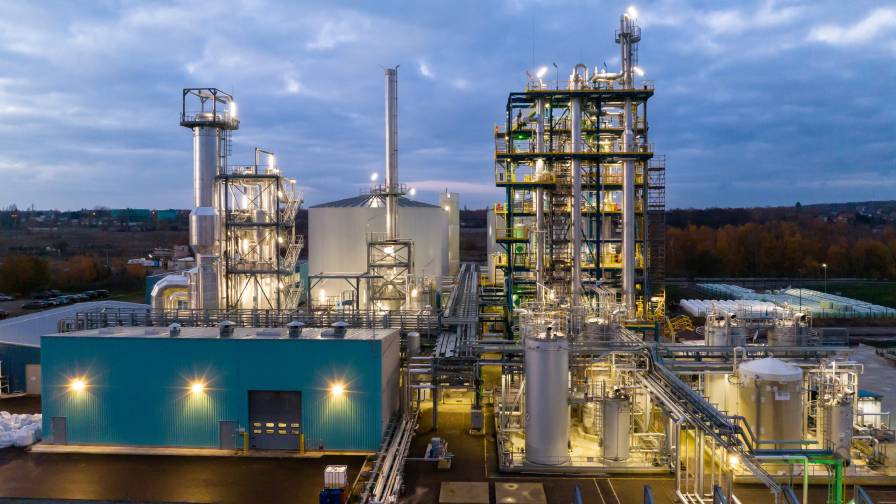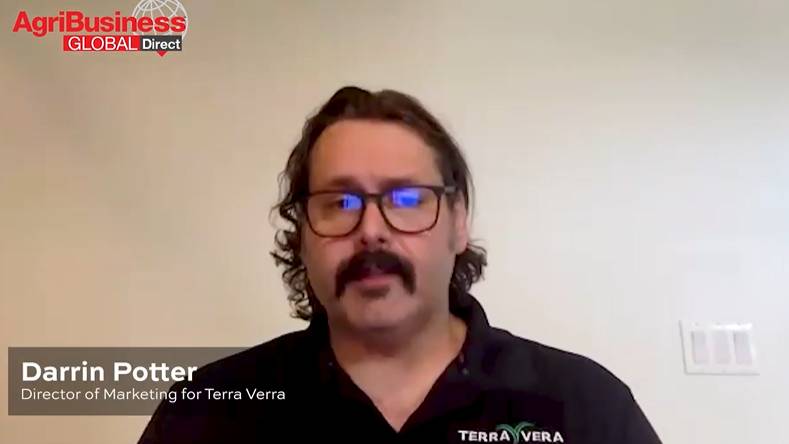CropCoat Commercialized in Indonesia, Pilots Expand in Coffee, Almonds
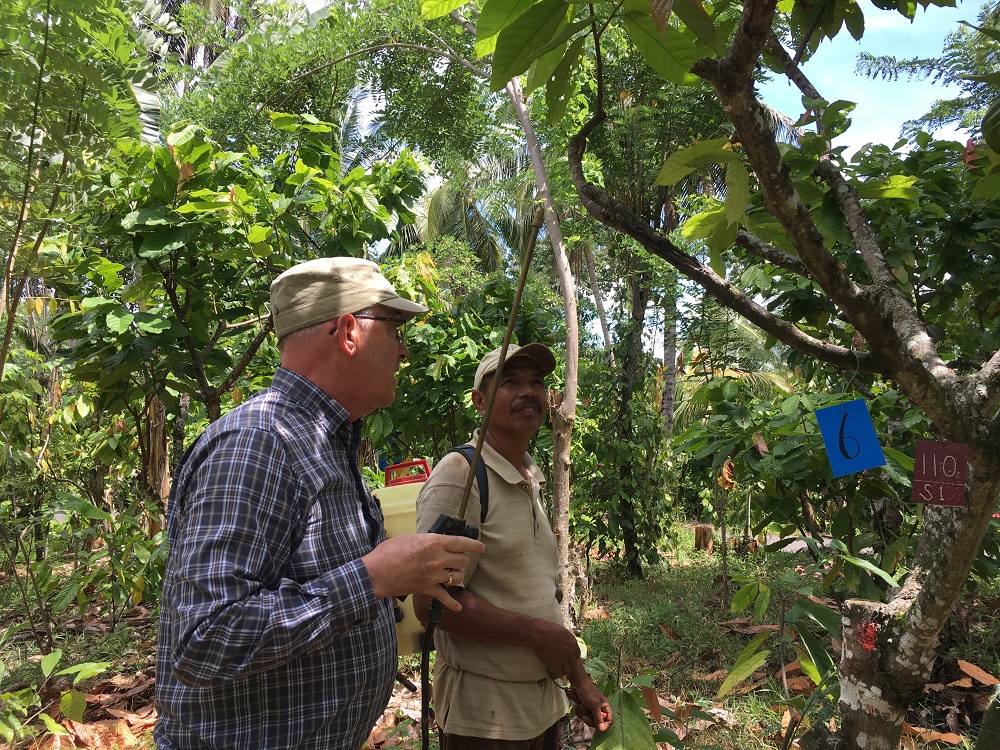
Crop Enhancement is growing its pilot trials on cocoa, coffee, and almonds. Above: Cocoa growers in Indonesia learn how to use the biological solution CropCoat.
CropCoat is showing that there are effective organic control options for insects and disease. Biological startup Crop Enhancement is growing its pilot trials on cocoa, coffee, and almonds and is setting the stage for entry into pistachios, apples, grapes, and higher-value vegetables like tomatoes, broccoli, and spinach.
“We are generating an approach for safer biological-based crop protection. It is really a new class of product. There are very few products that act the way our product does,” says Jean Pougnier, Crop Enhancement CEO. “We don’t act on the pest. We change the pest’s perception of the environment so that the plants are camouflaged from the insects, and that provides the protection, so it’s a unique technology.”

Jean Pougnier
CropCoat is registered in Indonesia on cocoa, and the dossier is almost complete in the U.S. with anticipated commercialization in late 2022. The commercial launch in Indonesia followed a pilot project with Cargill, which has comprehensive sustainability objectives throughout its food chain that include farmer prosperity in addition to environmental and food safety initiatives.
The Indonesia trial, which was conducted in partnership with Cargill’s NGO partner Swisscontact, involved 30 cocoa farmers, who experienced a 33% increase in yields and a 21% boost in net income without increasing input costs.
“Our aim is for the farmer to pay the same as he is paying today for similar pest control performance but of course with a lot more sustainability. In cocoa it protects against mirids and cocoa borer and also disease called phytophthora,” says Pougnier, a former director with DuPont, FMC, and VP at AMVAC. “In all those areas we’re showing really good performance. On coffee, we’ve had very good performance on berry borer. It depends on the crops. On almonds, which is a key priority for us, we have outstanding control on navel orangeworm, which is a key pest for almond growers.”
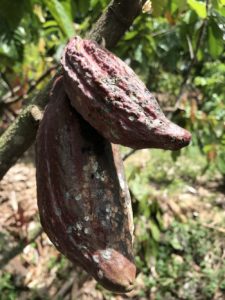
Damaged cocoa pods.
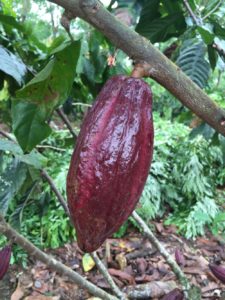
Cocoa pod with CropCoat.
Field trials on coffee trees conducted across Hawaii, Central and South America over the past three years found CropCoat reduces damage caused by the coffee berry borer up to 60% compared to untreated trees. CropCoat also controls the coffee leafminer.
In California almonds, CropCoat reduced the damage caused by navel orangeworms about 40% compared to trees left untreated. This protection prevents economic losses of several hundred dollars per acre and provides almond growers with a sustainable solution that does not require additional equipment or protective gear for application.
“The almond industry is very concerned about sustainability,” Pougnier says. “They have a number of goals they want to achieve by 2025, including water reduction, dust reduction and fewer chemical pesticides. Our product is going to be organic, and there aren’t that many organic products that work that well.”
With consumers, grocery retailers, and food processors increasingly focused on sustainable cultivation methods and labeling certifications, Pougnier says CropCoat can help the food production and processing industries meet an evolving consumer demand.
“There is a lot of consumer concern about chemical pesticides. They worry about what they do to the environment and their food with residues, and even though the industry says they are harmless, they still create some concern,” he says. “So there is a disconnect right now between what consumers want and what growers can use right now. The market is still 95% chemical, so our view is that a product like ours is really coming at a right time to enable some significant change in the industry.”
CropCoat can be applied using existing spray systems, including mist blowers, backpack sprayers, and boom sprayers. Application rates are about 1 gallon/100 gallons water to treat one acre, and the company is targeting retail distribution as registrations come online.

